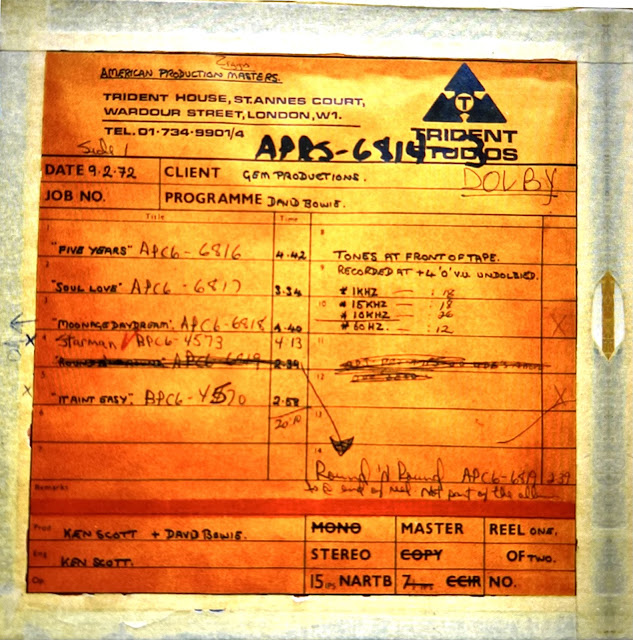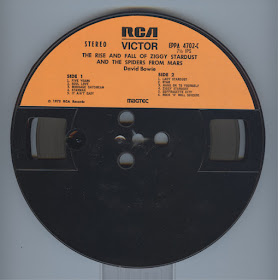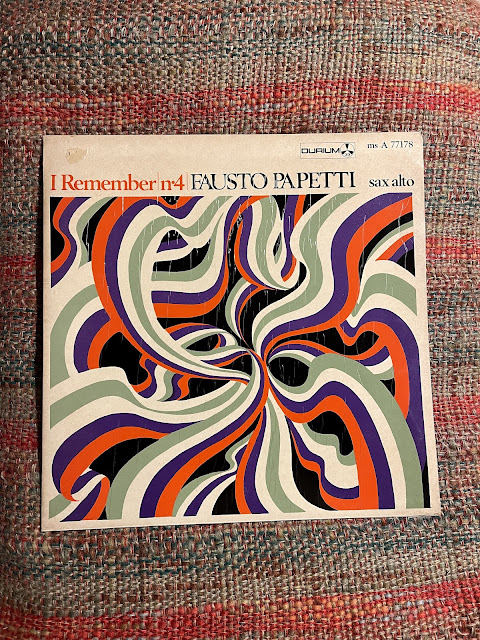Next, I want to introduce Jeff Polan, my partner in this effort. I met Jeff thru my Stellavox repair work. He had a deck that needed fixing, which led to extended conversations on tape electronics in general and improving their electronics in particular. Jeff is an electronics design engineer/manufacturer with a career in telecommunications and audio design (he also has 10 US patents in wireless and high-speed data acquisition). A long-time audiophile, this has “extended” into his home audio system, which he’s designed and built most of. The fact that he redesigned the audio electronics in his Stellavox AND his Studer A80 rekindled a thought I had about an upgrade product for that machine -a “plug’n play” repro card. One thing led to another and we began a collaborative effort, Jeff doing the design work and me laying out the PC board. This resulted in the set of prototype cards that I brought to Bruce’s and were we able to listen for the first time.
Why embark upon this effort in the first place? Both Jeff and I realized that the Studer audio electronics have “sonic deficiencies” that can be ameliorated by the use of modern design techniques and parts. My own “outboard” preamp work with many different tape machines had more than proven this and Jeff obtained similar improvements with his own A80. Let me hasten to add that we consider this project as a homage to the A80. The mechanics and tape handling capability of the A80 are first rate. FM sidebands (observed as wow and flutter) are among the lowest of any machine ever made. Plus there are a lot of them still around, so starting with a machine of this high caliber seemed like a good idea. And finally, developments in modern tape characteristics, semiconductors, and purist audiophile analog design meant the time was certainly right for an update of the 40-year old record and repro electronics.
Right from the beginning, making a new Repro card with an identical “fit, form and function”,(“plug’n play”; no rewiring required) was a principal design objective. The original, stock repro card amplified the playback head’s output, equalized the recorded signal back to flat response (coupled to the selected tape speed) and produced a single transformer-coupled balanced, 600 ohm, line-level output signal. Our design objectives were to include NAB; CCIR, AES, and a 4th customizable (nominally 10uS) EQ (selected from the front panel), adjustable bias trap, transformerless output and finally crosstalk compensation.
Our circuit concept mirrors that of Studer’s. The signal from the repro head enters a low-noise preamplifier; bias trap; then equalizer section, followed by a Balanced 600 ohm output stage. In our design, the low-noise pre-amplifier and equalizer sections are fully-discrete semiconductor, class A, direct coupled (no capacitors in the signal path) with a separate, Unbalanced Output available from an RCA jack on the front panel (a production update changed this connector - read on). The 600 ohm balanced output, is supplied from a high quality Integrated circuit balanced line driver that connects to the meter bridge and from there to the stock XLR line outputs. This is what we listened to at Bruce’s.
A limiting factor in the original Studer A80 with meter bridge came from the unbuffered VU meters which added distortion; along with the added cabling; switching and potentiometers in in the meter bridge. So, in order to allow the use of a meter bridge while not influencing the “sound” of the repro card, the final design incorporates a SECOND transformerless output line driver, whose balanced signal is available from a new 4-pin Neutrik connector on the front panel. This connector also includes the above-mentioned provision to “tap” the unbalanced signal from the amplifier/equalizer that proceeds the line driver . So you have your choice of minimalist/purist direct single-ended output, or very clean transformerless outputs!
Get ready for the specs - go Jeff! Discrete DC-coupled Class A amplifier design, carefull gain partitioning, attention to open loop linearity, and judicious application of local and overall feedback results in exceptionally low noise: -86dB A-wtd corresponding to 350nW/m , better than 10 dB -A-wtd noise margin below unrecorded virgin blank tape at NAB, 12dB at CCIR, 14 dB at AES, 15 db at 10uS. Exceptionally low THD and IMD combined with outstanding headroom (better than -80dB THD under all operating conditions thru +19 dB above 350nW/m at the single ended or balanced outputs; Ch-Ch crosstalk is -70 dB typical (Butterfly heads) with the Crosstalk canceller. Highly accurate repro EQ perfromance: +/- 0.5 dB 32 Hz - 20Khz typical at 15ips according to MRL fringing corrected Calibration tape; typically less than -3 dB at 25 Khz (Record/Repro). Whew! The board has High and Low speed Gain, Treble, Bass, and crosstalk user-adjustments . A highly effective Record Bias Trap is included, as is the automatic Studer HS/LS switching, and a power-on/off mute circuit. Full specifications for the production unit are in process, but of course the proof is in the listening which we continue to do.
Right now, the first group of 20 production PC boards are being fabricated. We have been scrambling to assemble enough parts to populate them and in so doing, have run smack into “the COVID wall” - parts discontinued; deliveries unknown and continuing price escalations up to 5-10X. This situation has also exacerbated elimination of the old(obsolete?) method of assembling the boards - from “through hole” parts, inserted and soldered into “holes” in the PC board, to surface mount devices (SMD) which are positions and soldered robotically. This type of SMD construction is cost prohibitive for small volumes. We don’t yet have a per-pair- price, and don’t know how many we could make – especially if the project should prove popular. We do hope to have the first production board available by the end of the year - Bruce B will get the first set for evaluation. We’ll also have a price for the first 10 pairs at that time.
From Bruce’s first posting, a few questions have arisen. Like will this card sound as good as an outboard preamp. That answer is an emphatic - “could very well be”! From a measurement and listening perspective, the card sounds VERY good. Jeff has tried the card on a few machines – both with Studer and Flux Magnetics heads. I don’t have an A80 but am finishing an adapter box to hold a pair of cards plus a power supply - and will be comparing it to my pre plus others.
This project has also spurned a few other “concepts”. The first is repackaging the design to fit in the Studer A8XX recorders, which (I feel) are more in need of repro “help” then the A80. Looking into this, the basic problem is twofold. First, the later A8XX’s used a separate fixed gain preamp built into the headblock. Next is the relatively small footprint of the separate repro card. Jeff is also fixated with the idea of a corresponding, improved RECORD CARD for the A80. He has some novel ideas that he’s “bread-boarded” into his own 80, including a group delay equalizer for correct time domain response, and 2-stage linearizer to compensate for tape and head magnetic saturation characteristics. He believes that a dynamic range/signal to noise ratio - of around 80dB (15ips/500nw/m ref) is doable on 1/4" tape at less than 3% THD . All of this will have to wait to see how this first venture unfolds. Oh and Mike L. – I’m keeping in mind your Zeel 50 ohm preamp input requirements
Charles














































